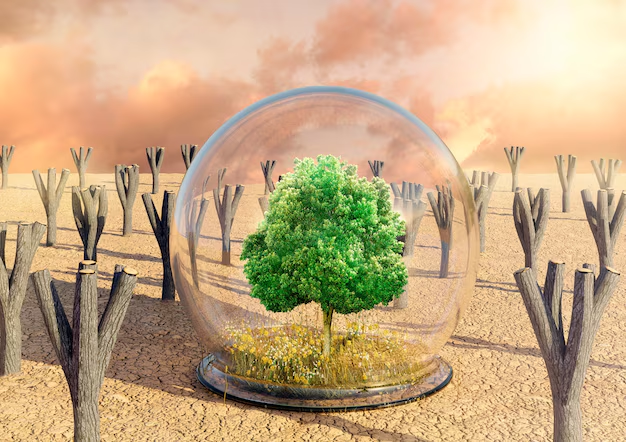
In today’s world, the urgency of environmental conservation has never been more pronounced. Climate change, deforestation, air and water pollution, loss of biodiversity, and overconsumption of natural resources are just a few of the alarming issues facing our planet. Our ecosystems are deteriorating, and the time for action is now. Protecting the environment is not only the responsibility of governments and organizations; it is a shared duty for individuals, communities, and industries around the globe. The future of our planet hinges on the steps we take today to mitigate harm and embrace sustainability.
The Current State of the Environment
The environmental crises we face are interlinked, each influencing the other in a harmful cycle. Climate change, largely driven by human activities like burning fossil fuels, has led to rising global temperatures. These changes affect weather patterns, causing more frequent and severe storms, droughts, and floods. Deforestation continues to wipe out large swaths of the world’s forests, disrupting ecosystems, releasing carbon into the atmosphere, and decreasing the planet’s ability to absorb greenhouse gases.
Biodiversity loss is another critical issue. Overfishing, poaching, habitat destruction, and pollution are pushing countless species to the brink of extinction. This loss weakens ecosystems, reducing their ability to provide the services that sustain life, such as purifying water, pollinating crops, and regulating climate.
Meanwhile, plastic pollution is choking oceans, harming marine life, and entering the food chain, creating long-lasting environmental damage. We continue to consume natural resources at unsustainable rates, exhausting freshwater supplies and causing soil degradation. These problems are not abstract concepts – they are happening right now, and they threaten the planet’s delicate balance.
The Importance of Conservation
Conservation is crucial for the survival of life on Earth. It involves safeguarding our natural resources, protecting endangered species, and ensuring the health of ecosystems. This means reducing pollution, conserving water, protecting forests, and creating sustainable practices for industries. Conservation is not just about preserving the beauty of nature; it is about safeguarding the systems that support life on Earth.
- Mitigating Climate Change: By adopting renewable energy sources, reducing greenhouse gas emissions, and implementing sustainable practices, we can slow the pace of climate change. Protecting forests, which serve as carbon sinks, is also vital in absorbing carbon dioxide from the atmosphere.
- Preserving Biodiversity: Each species plays a role in the intricate web of life, from maintaining ecological balance to supporting agricultural productivity. Efforts to protect endangered species and restore habitats are critical to maintaining biodiversity.
- Sustaining Resources: Responsible resource management can prevent the depletion of vital natural resources. From reducing water consumption to encouraging sustainable farming practices, every action counts.
- Improving Human Health: A healthy environment directly impacts human well-being. Clean air and water, access to green spaces, and healthy ecosystems improve physical and mental health. Pollution, on the other hand, exacerbates diseases and reduces quality of life.
How Can We Contribute?
Individuals, communities, businesses, and governments must take collective action to protect the environment. While large-scale changes are essential, every individual can play a role in promoting sustainability. Here are a few ways to contribute:
- Reduce, Reuse, Recycle: Minimize waste by recycling materials and reusing items whenever possible. Reduce consumption by buying only what is necessary and choosing products with minimal environmental impact.
- Support Sustainable Practices: Purchase products from companies that follow sustainable practices, such as those that use renewable resources, minimize waste, or reduce carbon emissions.
- Conserve Water and Energy: Simple actions, like turning off lights when not in use, fixing leaks, or using water-efficient appliances, can make a significant impact on reducing energy and water consumption.
- Get Involved in Local Conservation Efforts: Participate in tree planting, beach cleanups, and wildlife conservation programs. Advocate for policies that protect the environment.
- Educate Yourself and Others: Stay informed about environmental issues and share your knowledge with others. Education fosters awareness, which can lead to collective action.
FAQs
1. Why is environmental conservation important?
Environmental conservation is essential because it ensures the survival of ecosystems, preserves biodiversity, and protects natural resources that sustain life. It helps combat climate change, supports human health, and maintains a balance in nature.
2. What are the most pressing environmental issues today?
The most pressing issues include climate change, pollution (especially plastic), deforestation, biodiversity loss, and overconsumption of resources. These challenges are interconnected and require urgent action to address.
3. How can I reduce my carbon footprint?
You can reduce your carbon footprint by using public transportation, driving less, switching to renewable energy sources, reducing energy consumption, and consuming fewer animal-based products. Also, supporting sustainable businesses helps.
4. What role do forests play in environmental conservation?
Forests act as carbon sinks, absorbing carbon dioxide from the atmosphere and helping to mitigate climate change. They also provide habitats for wildlife, contribute to the water cycle, and support biodiversity.
5. How does pollution affect the environment?
Pollution harms air, water, and soil quality, causing health problems for humans and wildlife. It also disrupts ecosystems and contributes to climate change and biodiversity loss.
6. How can businesses promote environmental conservation?
Businesses can adopt sustainable practices by reducing waste, using renewable energy, minimizing emissions, sourcing materials responsibly, and supporting conservation efforts. Corporate social responsibility plays a key role.
7. What is the impact of plastic on the environment?
Plastic pollution affects oceans, marine life, and ecosystems. It takes hundreds of years to decompose, leaching toxic substances into the environment. Recycling and reducing plastic use are key to mitigating this issue.
Conclusion
Environmental conservation is an urgent issue that demands global action. The planet’s ecosystems are under immense strain, and the effects of our environmental neglect are becoming increasingly evident. By adopting sustainable practices, supporting conservation efforts, and educating ourselves and others, we can reduce the negative impact and work towards a healthier, more sustainable future for all.
